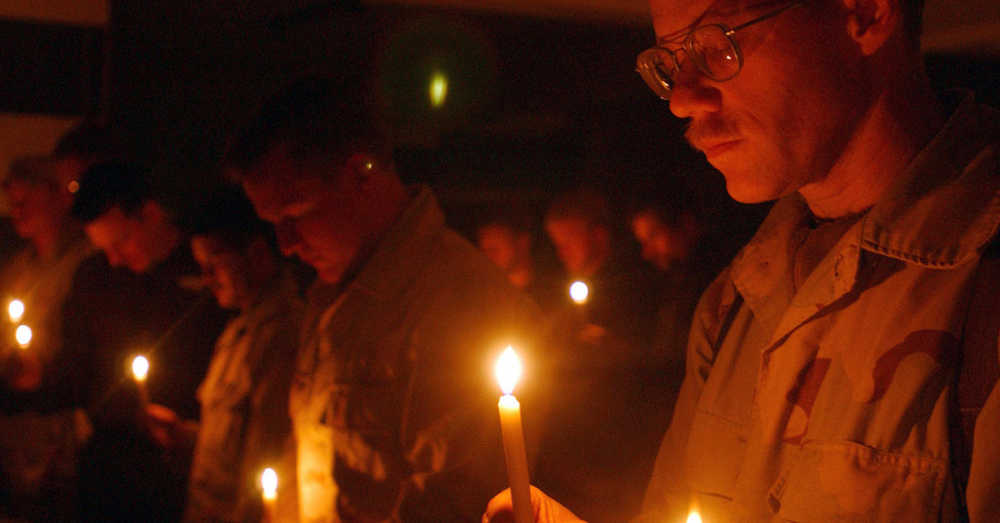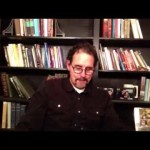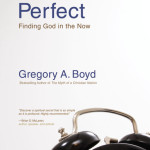We run our website the way we wished the whole internet worked: we provide high quality original content with no ads. We are funded solely by your direct support. Please consider supporting this project.

Do My Prayers Matter?
We talked about the risk God took in creating the world as he did (see previous post). The choices made by humans and spiritual agents influence what transpires in history. This sets the stage for an understanding of how our prayers have influence on what actually happens in the world. To make this point, I want to quote a passage from the novel The Blood and the Lamb by Peter DeVries. In this novel, a woman who has tuberculosis asks Wanderhope, the main character who also has tuberculosis, about how he prays for healing. He confesses that he actually does not pray. He states,
“That would mean [that] the one I was addressing had done this to you to begin with, which I find hard to believe… Asking Him to cure you—or me, or anybody—implies a personal being who arbitrarily does us this dirt. The prayer then is a plea to have a heart, to knock it off. I find the thought repulsive. I prefer to think we’re victims of chance to dignifying any such force with the name of providence.”
Wanderhope assumes that either God controls all things and is therefore arbitrary—which means that prayer is only an act of trying to twist God’s arm—or that history unfolds and evils come upon people by chance, which means that praying is useless.
Wanderhope, correctly, does not attribute to the will of God the arbitrary way in which some contract tuberculosis and others do not. He is correct to reject prayer as a form of divine arm twisting. He is also correct that people afflicted with something like tuberculosis are largely victims of chance. As I’ve argued in many places, there is no final explanation as to why Wanderhope or this woman contracted tuberculosis. A myriad of variables converged to produce this unfortunate situation.
However, Wanderhope’s conclusion that prayer is useless is wrong for two reasons. First, we need not think that God must control everything or that chance has ultimate control. There is a view that lies in between, where God influences the whole process, working to bring about as much good and to prevent as much evil as possible.
Second, while there are many contingent variables that influence every particular situation, one of those variables is the genuine say-so of humans who can choose to pray. Wanderhope does not see how he has any say-so on a spiritual level. God created us so that one of the ways we influence the world is by influencing God through prayer.
Therefore, while we recognize that chance is a reality, Wanderhope should have still prayed. Would he be twisting God’s arm to do what God would rather not do? By no means. Instead he would be exercising his moral responsibility and thereby contributing to the possibility of God doing what God most likely already wanted to do.
Would God be arbitrary in responding to this prayer either by healing or by not healing this woman in the story? Or would it be the woman’s fault if she was not healed? We have no reason to assume this. There are simply too many variables for us with our myopic, creaturely perspectives to discern why in any given instance one person was healed while another was not.
If the woman were healed, would that mean that God was the one who gave her the disease in the first place? Not according to Jesus, who attributed diseases to Satan or to one of his demons. All of God’s healing work are acts of war, as the NT depicts sickness and disease as originating from the devil. In praying against such matters, we are siding with God against his enemy and exercising our God-given authority as joint heirs with Christ.
—Adapted from Satan and the Problem of Evil, pages 236-238
Related Reading

Sermon: God Needs Prayer
In this sermon clip, Greg Boyd discusses some of the challenges we face when praying. The full sermon wrestles with questions like: If God is all-powerful, does he need our prayers to change this world? And is it even worth praying if we can’t see the results? Greg addresses these questions as he begins a…

A Blessing for 2015
Image by Jean-Michel Guisiano via Flickr In the Kingdom, there is no waiting. There is only now. The time to be fully awake and fully alive is now. The time to abide in Christ and to live passionately in love is now. The time to live in God’s presence and let God be “all in all” is…

The Easiest (and Hardest) Spiritual Discipline
The glory of God surrounds you every second of every day. What a profound truth! But most of the time—like a dark cloud blocking the sun—the mental chatter about the past and the future keeps us from seeing it. We are absorbed in the past—with all the regrets and pain—or the future—shaped by both hopes…

Hearing and Responding to God: Part 5
We hope you’ve enjoyed this series on hearing and responding to God. In this last video on the topic, Greg discusses the significance of the fact that God IS love, and how our communion with him is the product of God’s eternal loving nature. You can watch the earlier installments here, here, here, and here. ***Bonus: Greg experiences a…

Living As If God Exists
It is so easy to do our daily stuff of life as though God does not exist. This is not a statement about our beliefs about God’s existence. It’s a statement about our moment-by-moment living. This is even true for those of us who spend most of our time in daily work that is directly…
